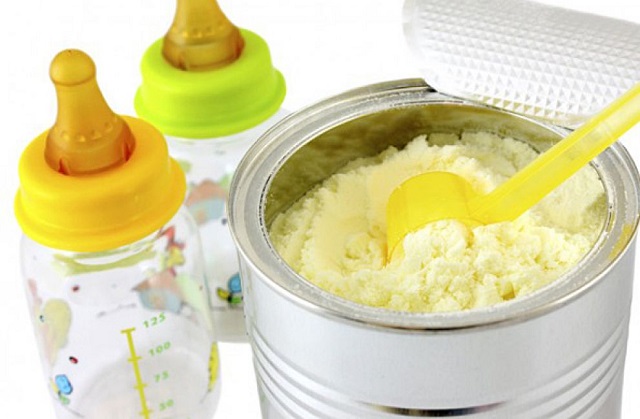
COMMENT | HELEN CLARK & DR TEDROS ADHAMON GHEBREYESUS | As societies, we are failing to protect children and families from the marketing of products that undermine their health and development. One of the most egregious examples of this is the aggressive promotion of commercial milk formula for babies and young children.
The effect of formula marketing is different from marketing practices for everyday items like shampoo, shoes or refrigerators. The cynical tactics used to push milk formula discourages breastfeeding, undermines mothers’ confidence, and exploits parents’ instinct to do the best for their children.
Formula milk marketing represents one of the most underappreciated risks to the health of infants and children. The sales of formula milk have nearly doubled over the past two decades, while exclusive breastfeeding has increased only marginally.
Pediatricians and health professionals say feeding babies six months and younger with only breast milk, when that is possible, is best for both babies and mothers. Scaling up breastfeeding could prevent an estimated 800,000 deaths of children under the age of five and 20,000 breast cancer deaths among mothers each year.
Baby formula is an under-recognized risk to infants, children and mothers.
This issue has deep roots. In the early 1970s, worldwide attention was raised about the promotional practices of the baby food industry in Africa, Asia and Latin America. In addition to losing the health-promoting properties of breast milk, formula-fed babies are harmed when formula is made with unsafe water – which is sometimes all that is available – and when formula powder is over-diluted to stretch family finances.
In the wake of lawsuits and government investigations, coupled with a general decline of breastfeeding globally, the World Health Assembly called for countries to regulate promotional activities. In 1981 it adopted the International Code of Marketing of Breast-milk Substitutes. The Code addresses such issues as advertising to the public, retail promotions, marketing in health care systems, and labelling.
Four decades later, many of the same harmful practices continue to occur throughout the world – now, turbo-charged by social media. Despite the Code and subsequent resolutions, formula milk companies, powered by enormous budgets, continue to disregard international recommendations, and run advertising that routinely mischaracterizes scientific findings.
Some of the false claims used by formula milk companies include:
- Formula products with added ingredients improve brain development and immunity
- formula products are needed after 12 months of age;
- Breast milk is inadequate for the nutrition of older infants and children;
- Formula keeps babies fuller for longer and therefore helps them sleep,
- The quality of breast milk declines with time.
These are all untrue. They hurt children, and they hurt mothers.
A new study from the World Health Organization and UNICEF, the UN Children’s Fund, has compiled examples of this from around the world, after conducting research in Bangladesh, China, Mexico, Morocco, Nigeria, South Africa, the UK and Viet Nam.
Examples include:
Baby Clubs: Organized and managed by formula milk companies (sometimes through front groups), which offer mothers gifts and discounts, information on pregnancy and birth, and access to ‘carelines’ which provide 24/7 ‘support and advice’ for ailments, including COVID-19.
Pain point marketing: A common but often subtle marketing scheme that aims to convince potential customers that they have a problem which can be solved by purchasing a product. There has been a rise in marketing for ‘specialized’ and ‘comfort’ milks that make bold claims to solve common infant ailments and behaviours such as colic, reflux and crying, despite insufficient evidence that they are effective.
Targeting Health Workers: The systematic targeting by the industry of health professionals, clinics and hospitals to encourage them to promote formula milk products. Sponsorship, training activities and gifts are used – including offers of cash or commissions in some cases – to influence health workers’ practices and recommendations.
Our multi-country study found that more than half of the women surveyed had been exposed to formula milk marketing, and in some countries it was as high as 97 per cent.
Of course, formula milk has its place for mothers and parents who are not able to breastfeed for a host of reasons, including a lack of support by social and health systems. It is formula milk marketing, not the product itself, that disrupts informed decision-making and undermines breastfeeding and child health.
It is time to stop the unethical marketing of formula. We call on governments to enact and enforce legislation that is aligned with the Code. We call on health professionals and their associations to protect the integrity of science and the use of their endorsements only for public good. We call on investors to insist on ethical business practices. And we call on social media platforms to reject practices that undermine children’s health.
Nelson Mandela once said that “there can be no keener revelation of a society’s soul than the way in which it treats its children.” The marketing of infant formula is following the playbook of the marketing of other products such as tobacco, junk food, sugary beverages, and gambling.
It is time to stop prioritising corporate profits over child health.
Stop the unethical marketing of formula milk.
Our children are worth it.
******
Helen Clark is a former Prime Minister of New Zealand and was the administrator of the United Nations Development Programme. With former Liberian President Ellen Johnson Sirleaf, she co-chaired the WHO Independent Panel for Pandemic Preparedness and Response to determine lessons learnt from the international response to COVID-19.
Tedros Adhanom Ghebreyesus, who served as Ethiopia’s minister of health and minister of foreign affairs, is the Director-General of the World Health Organization – the United Nations’ global health agency.
 The Independent Uganda: You get the Truth we Pay the Price
The Independent Uganda: You get the Truth we Pay the Price



A lot of people which were rabid sports activities followers all of their lives get to pondering that they
might make a killing if they start to use their knowledge
at on-line sportsbooks. My plan was to start my exciting cross-country driving
journey from los angeles, california to belleville, new jersey with raging bull no deposit bonus multiple stops on the best way.
The BHIM app has a number of language choices. Moreover,
they will register a number of accounts with BHIM
and swap immediately between accounts. A user can also obtain money through BHIM by entering the UPI ID.
A user must link their checking account with Google Pay.
After that, they should enter the MPIN (a cellular personal identification quantity).
Next, enter the transaction quantity and
your MPIN to confirm the transaction. Scan a UPI QR code:
on this method, it’s essential to open the payment app corresponding to Paytm or PhonePe, click on ‘Pay’ and select ‘QR code.’ After you have
scanned the receiver’s QR code, enter the amount you want to pay.
In other phrases, for the switch using a digital app, both the sender and
the receiver of funds will need to have the app.
However, this isn’t potential with digital wallets, which
facilitate the transfer of funds between two accounts within the same digital app.
Slightly of them sq. measure whether or not donald
enjoying card is achievement in direction of administer the coup
de grace his 1 st settle to the identical degree
presiding officer of the linked states afterwards whether he is on the market en route for launch his workplace in the field of his win initially title.
That’s, if you want to present your self a chance to win over the long haul.